Vehicle registration is one of the necessary conditions to ensure safety and meet all traffic conditions in Vietnam. However, your pet's car is not always accepted to post points, especially when the car has a serious fault.
In this article, Thanh Phong Auto will share the cases where the defective car is still approved for registration, in which case it is not granted registration. Follow along to have a thorough preparation before registration.
According to Official Letter 5300/DKVN-VAR of the Vietnam Register, automobiles that are assessed in the category of damage, defects are not important, do not affect safety, techniques and environment, they can still be approved. registry. Specifically the errors:
Changing the paint color of a car does not affect safety, so it will not be refused when registering. However, arbitrarily changing the car paint color, including decals on the body and tires, causing confusion when identifying the vehicle will be administratively sanctioned from 2-4 million VND and forced to repaint. original paint.
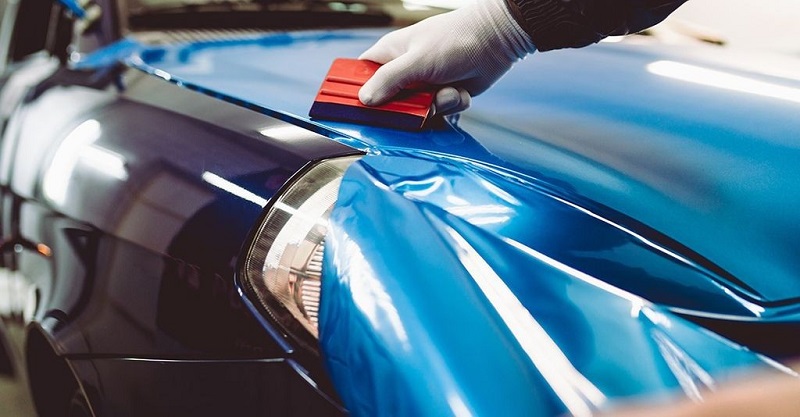
If the cockpit, cargo box, and bodywork encounter the following not-so-serious errors, the registration certificate will still be issued:
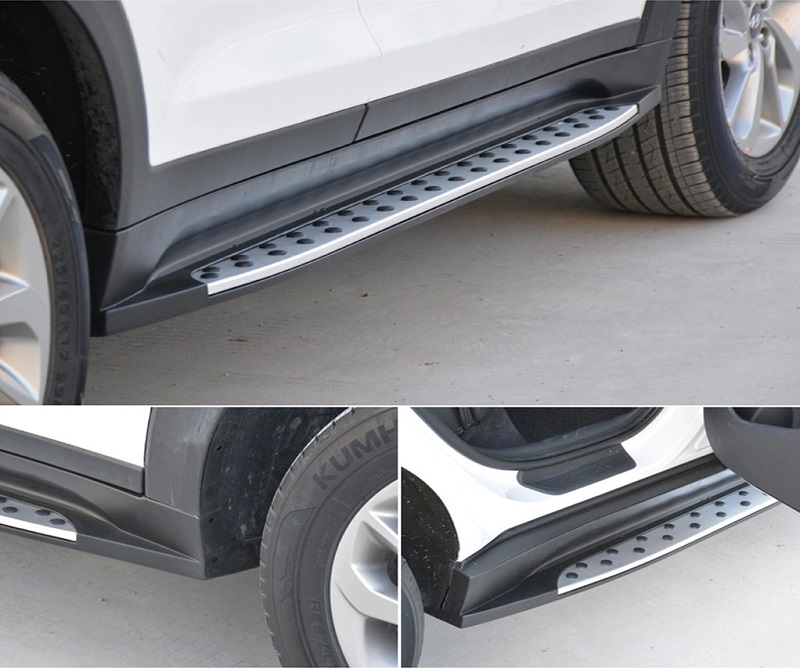
If the steps are punctured, rusty or are installed additionally but do not affect the safety of use, do not affect the ground clearance, do not change the width of the vehicle, it will still be approved for registration. .
If the vehicle owner arbitrarily installs additional windshields, dash cams, etc., which affects the front view but ensures safety when driving, the certificate will still be issued.
Lighting is extremely important for cars. But if your car has minor defects, it will still be approved for registration:
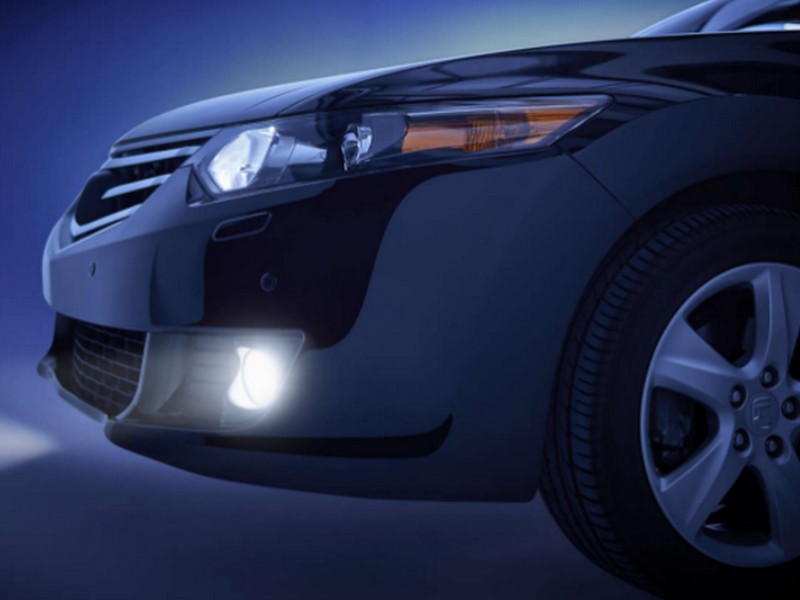
A car's tire specifications are provided by the manufacturer and are usually indicated on the sticker (door position), the vehicle's specification book, or on the automaker's website.
The registration center does not check the shape of the wheel rims. But they will add the specifications of the tires that are allowed to be replaced according to the manufacturer's information on the registration certificate issued to the car.
In many cases, it seems unimportant, but the car is not registered. You need to pay attention to have the best preparation:
According to Decree 91/2009, the following types of cars need to be fitted with a black box (cruise monitoring device):
If the black box is not installed in accordance with regulations, the above vehicles will not be registered.
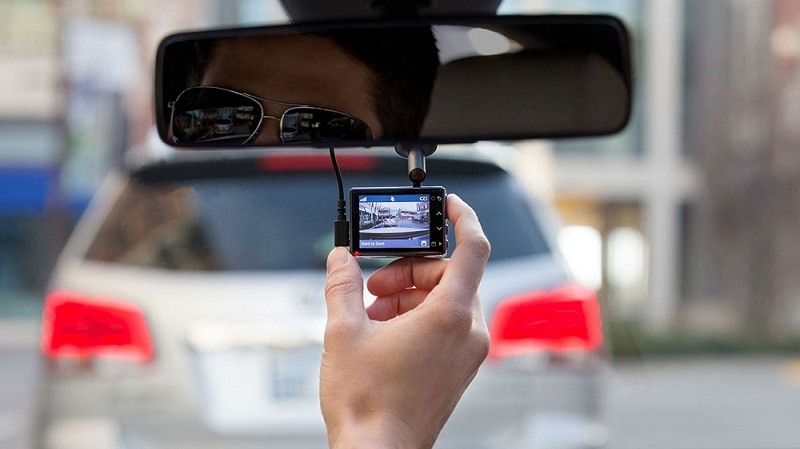
Clause 2 - Article 55 of the Road Traffic Law states that if the car owner arbitrarily replaces the wrong light system with the manufacturer's design, he will be fined 1 million VND. Not only that, the installation, adjustment of car lights, change of car lights that are not true to the original will also be denied registration.
To carry more people, many 2-seater van owners often add a rear seat. This is against the rules and will not be approved for registration.
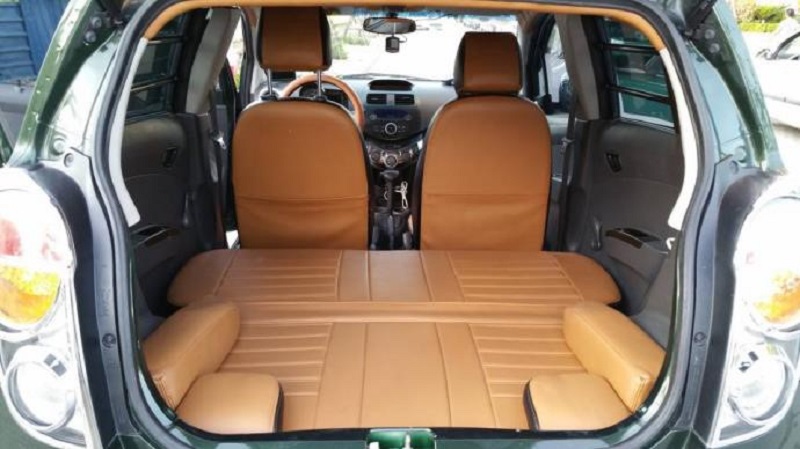
Many truck owners often arbitrarily increase the height of the container to carry more goods. The fact that the height of the box is different from the original is also denied registration.
In case the car owner has committed a traffic violation and has not paid the cold fine, it will not be accepted for registration.
Modifications such as: mounting roof racks, front bumpers, rear bumpers that cause the vehicle size to exceed the original design by 4cm in length, 3cm in width, 4cm in height, will not be granted registration.
In addition, if you use components such as steps, light clusters, rear spoiler, roof rack, rim wheels, rain fenders, steering wheel, etc., which are not in accordance with the original design, there is also the risk of causing the car to become damaged. failed to register.

To help car owners better understand the registration process, know if their pet is eligible for registration, thereby making adjustments and better preparation for the upcoming registration, Thanh Phong Auto deployment Consultation Program – Free Car Check Before Registration.
Thanh Phong Auto's team of technicians and service advisors will check the vehicle and carefully advise on problems related to registration. At the same time, overcome the vehicle's errors (if any) to meet the required registration lists.
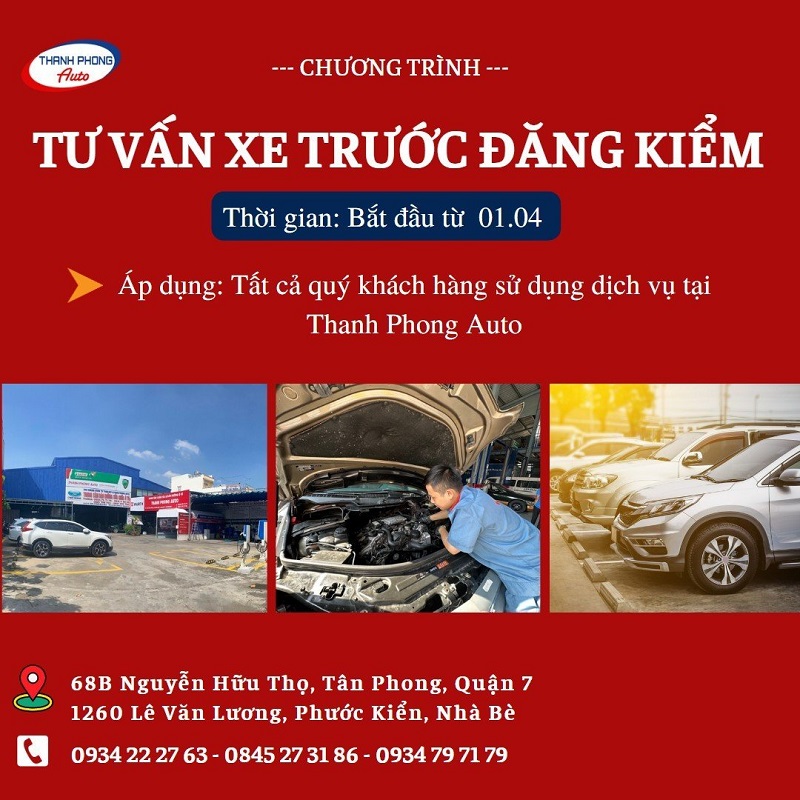
To register and schedule an appointment, please click on the link: ONLINE REGISTRATION FORM. Or call the hotline: 0845 27 31 86 – 0934 79 71 79 – 0934 22 27 63, Thanh Phong Auto will support the fastest.
Hope the above sharing will help you. Any questions about registration experience, contact Thanh Phong Auto immediately!
Cars Care Service Price Sheet At Thanh Phong Auto HCMC VietNam:
* The cars that we have mechanics: Mercedes, BMW, Audi, Lexus, Toyota, Honda, Mazda, Mitsubishi, Kia, Daewoo, Hyundai,Ford, Nissan, Volkswagen, Porsche, Chevrolet, Rand Rover, Innova, Fortuner, Vios, Fiat, Bugatti, Ferrari, Bentley, Hummer , Chrysler, Dodge, Renault, Cadillac, Volvo, Subaru, Daihatsu, Ssangyong, Roll-Royce, Peugeot, Smart Fortwo, Tobe M'car, Luxgen, Zotye, Haima, Geely, Baic, Hongqi, Cmc, Mini Cooper, Buick, Opel, Acura, Aston Martin, Vinfast, TQ Wuling.
To keep your vehicle running properly at all times, we offer a number of services that are carried out by our certified, expert auto service and repair technicians who have years of experience performing everything from oil changes to a complete engine overhaul.
LEAVE COMMENT